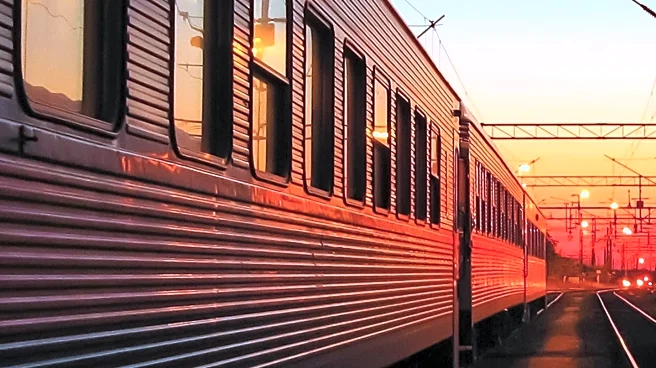What's Happening?
Tens of thousands of Israelis are traveling to Uman, Ukraine, for Rosh Hashanah, despite challenges posed by the ongoing Russia-Ukraine conflict. The pilgrimage to Rabbi Nachman's grave has become increasingly difficult due to border delays and security checks. To address these issues, organized train trips from Europe have emerged as a popular solution, offering luxury options with kosher catering. This year, approximately 55,000 pilgrims are expected to arrive in Uman, with many opting for train travel to avoid the complexities of flying and border crossings.
Why It's Important?
The organized train trips represent a significant adaptation to geopolitical challenges, allowing pilgrims to maintain religious traditions despite the war in Ukraine. This development highlights the resilience and determination of the Breslov community to continue their annual pilgrimage. The train journeys not only provide logistical solutions but also enhance the spiritual experience by offering comfort and community during travel. This trend may influence future travel arrangements for religious pilgrimages, showcasing the potential for innovative solutions in response to international conflicts.
What's Next?
As the demand for train travel to Uman grows, further coordination between railway authorities and religious organizers is expected to streamline the process. The success of these train trips may lead to expanded services and increased collaboration with European rail networks. Additionally, the ongoing conflict in Ukraine may necessitate continued adaptation and innovation in travel arrangements for pilgrims. Stakeholders will likely monitor the situation closely to ensure safety and efficiency in future pilgrimages.
Beyond the Headlines
The shift to train travel for religious pilgrimages may have broader implications for international travel and tourism, particularly in conflict zones. It raises questions about the role of transportation infrastructure in facilitating cultural and religious practices. Furthermore, the emphasis on community and shared experiences during travel may influence how religious groups approach pilgrimage logistics in the future.









